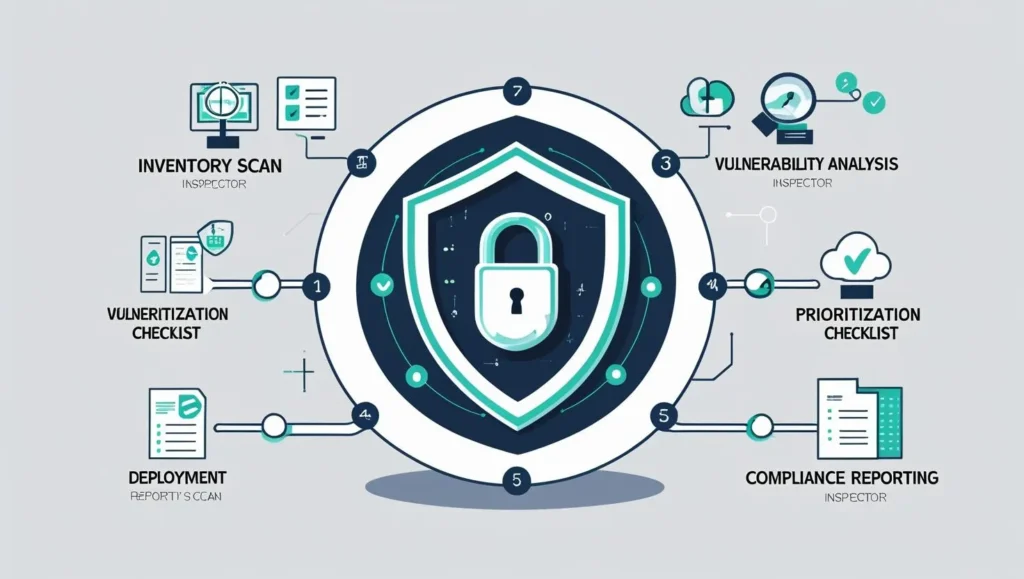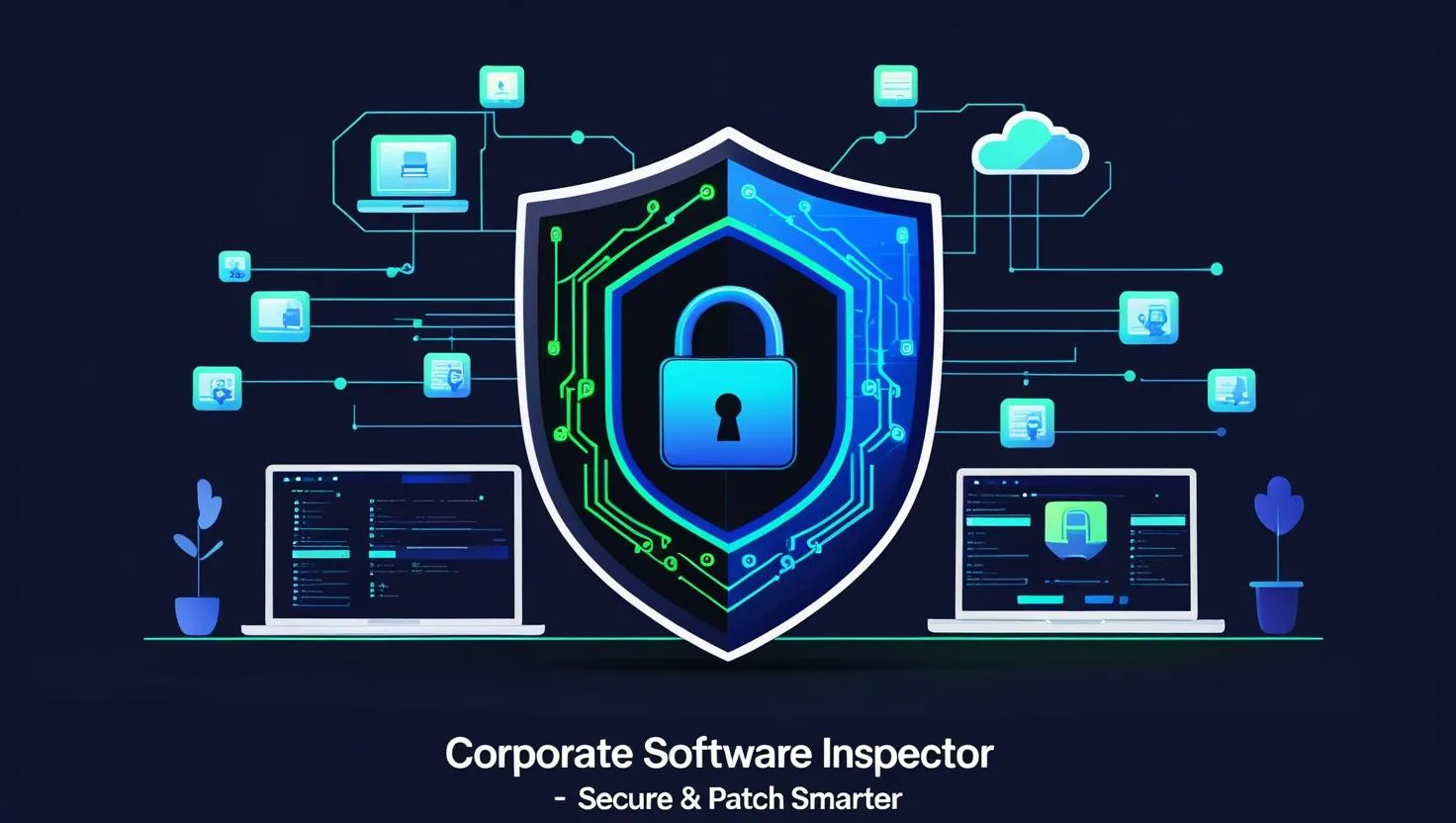Running a business today often feels like juggling a dozen things at once — data management, client services, cybersecurity, and more. Behind the scenes, all of this relies on software. But as companies grow, keeping track of every application, license, and update quickly turns into chaos. That’s where a Corporate Software Inspector comes in.
Think of it as your digital watchdog — constantly monitoring, auditing, and organizing your company’s software ecosystem. It helps you stay compliant, secure, and cost-efficient, all while giving IT teams a clearer picture of what’s really happening inside the system.
What is a Corporate Software Inspector?
A Corporate Software Inspector isn’t a person with a magnifying glass but rather a powerful tool designed to scan, track, and manage business software. It forms part of broader Software Asset Management (SAM) and IT compliance solutions.
In simple terms, it:
- Scans company devices and servers for all installed applications.
- Identifies unlicensed or unauthorized software.
- Matches installed software with license agreements.
- Creates audit-ready reports.
- Helps IT teams optimize usage and cut unnecessary costs.
For businesses that rely on dozens (or even hundreds) of applications, this tool is a lifesaver.
Why Businesses Need Software Inspections
Software inspections aren’t just a compliance exercise — they protect companies from hidden risks. Here’s why they matter:
1. Avoiding License Violations
Accidentally using software beyond its licensed terms can lead to legal trouble, fines, or expensive settlements.
2. Strengthening Cybersecurity
Unauthorized or outdated applications are like unlocked doors for cybercriminals. Inspectors spot these weak links before hackers do.
3. Cutting IT Waste
Unnecessary apps drain system resources and budgets. Software inspections highlight underused tools so businesses can reduce costs.
4. Meeting Compliance Standards
Industries such as healthcare, banking, and defense require strict compliance. Without proper tracking, one overlooked app could cause serious penalties.
In short, skipping inspections is like leaving your office unlocked overnight — risky and expensive.
How Does a Corporate Software Inspector Work?

Most inspectors follow a systematic approach:
- Inventory Scan – Scans every device and server to map out all installed software.
- License Matching – Compares installations with valid licenses to spot overuse or gaps.
- Usage Analysis – Tracks real usage so businesses can remove “shelfware” (apps nobody uses).
- Compliance Audits – Generates detailed reports for internal checks or regulatory audits.
- Alerts & Notifications – Warns IT teams about unauthorized apps or license limits.
- System Integration – Many tools connect with ERP or IT service platforms for smoother operations.
Benefits of Using a Corporate Software Inspector
Adopting one brings multiple advantages:
- Improved Compliance – Stay within licensing and regulatory limits automatically.
- Cost Savings – Eliminate unused or duplicate software subscriptions.
- Stronger Security – Catch outdated apps and vulnerabilities before they cause damage.
- Audit-Ready Reports – Be prepared for external checks without last-minute panic.
- Centralized Management – Monitor everything from a single dashboard.
- Better Vendor Management – Evaluate which providers are worth renewing contracts with.
Challenges & Drawbacks
Of course, no tool is perfect. Some challenges include:
- Setup Complexity – Initial configuration can be time-consuming.
- High Costs – Advanced solutions may feel expensive for small businesses (though ROI is often worth it).
- False Alerts – Misconfigured settings sometimes flag legitimate apps.
- Privacy Concerns – Continuous monitoring may raise employee concerns.
- Learning Curve – IT teams need training to use advanced features effectively.
What to Look for in a Corporate Software Inspector
When choosing the right solution, consider:
- Automated Discovery – Hands-free, real-time scanning.
- License Tracking – Compatibility with multiple software vendors.
- Custom Reporting – Tailored compliance and usage reports.
- Security Alerts – Notifications for suspicious activities.
- System Integration – ERP, ITSM, and cloud compatibility.
- AI & Predictive Analytics – Forecasting usage and suggesting license adjustments.
- Cloud Support – Essential for hybrid or cloud-based businesses.
Industry Use Cases
Different industries benefit in unique ways:
- Healthcare – Ensures HIPAA compliance and data security.
- Finance – Meets SOX and PCI-DSS audit requirements.
- Education – Controls software across school labs and student devices.
- IT Services – Helps managed service providers oversee multiple clients.
- Manufacturing – Tracks costly design software like AutoCAD and SolidWorks.
Conclusion
In today’s digital-first world, businesses can’t afford to treat software management as an afterthought. A Corporate Software Inspector simplifies the process by offering visibility, compliance, and security in one place.
Yes, setup may require effort, but the long-term benefits — from cost savings to audit readiness — far outweigh the challenges. Whether you’re a growing startup or a global enterprise, adopting the right inspector is like hiring a tireless IT guardian who never sleeps.
FAQs
Q1. What is a Corporate Software Inspector?
Corporate Software Inspector is a tool that scans, monitors, and manages all software installed in a company to ensure compliance, security, and efficiency.
Q2. Is it only for large companies?
No. While especially useful for enterprises, even small and mid-sized businesses can benefit from reduced costs and improved security.
Q3. Does it replace IT staff?
Not at all. Instead, it supports IT teams by automating repetitive tasks like audits, license checks, and reporting.
Q4. How does it improve security?
By flagging outdated, unauthorized, or vulnerable software before it becomes a gateway for cyber threats.
Q5. Is the investment worth it for small businesses?
Yes. Even though setup can be costly, the long-term savings from avoiding fines, cutting unused apps, and preventing breaches make it worthwhile.

